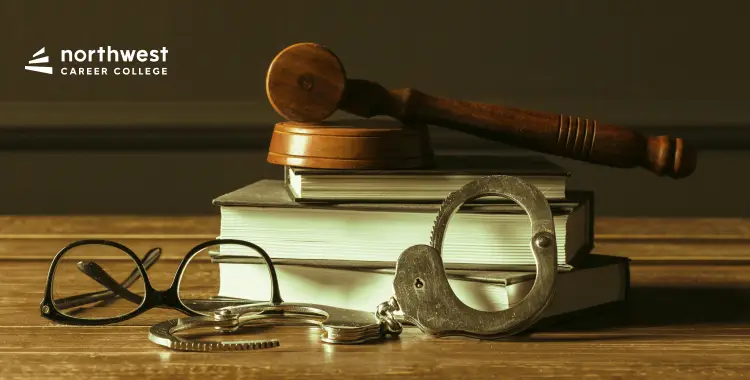Constitutional Rights that All Criminal Justice Professionals Should Know
- Criminal Justice Professional
-
 Authored by
Eligio Gandarilla
Authored by
Eligio Gandarilla
- Updated November 4, 2025
- 1.3k views
Criminal Justice Professionals serve to bring fairness to the community, and it’s not solely about enforcing the law. You will also need to be familiar with everyone’s rights under the U.S. Constitution. These rights ensure that people are not mistreated and everyone has an equal opportunity.
If you’re an aspiring criminal justice professional, you must know these rights to do your work effectively and ethically. Let’s discuss the major constitutional rights you should know to effectively and ethically do your work.

Table of Contents
The Right to Due Process
One of the foundational constitutional rights is the right to due process of law, as guaranteed by the 5th and 14th Amendments. This assures that any individual, either innocent or guilty, shall have a fair and just legal process. Nobody can deprive a living being of life, liberty, or property except by due process of law.
As someone who will work in the legal field, you must ensure that due process is administered in every case. This will ensure that evidence is gathered legally, suspects are treated equally, and everyone receives a fair trial.
Right to Remain Silent
The 5th Amendment provides a personal right to remain silent when questioned by the police. It protects individuals from self-incrimination or being compelled to admit something that might incriminate them.
Upholding this right during investigations is necessary. One can’t compel someone to speak if they wish to remain silent; they need to be informed that they have the right to do so. This helps ensure that confessions and evidence are accurate and admissible in a courtroom.
Right to Legal Advice
The 6th Amendment guarantees the right to counsel, providing that anyone charged with a crime will have the right to a lawyer, even if they cannot afford one. This privilege is essential so the accused will have someone to guide them through the legal system and look out for their best interests.
Criminal Justice Professionals must inform suspects of their right to counsel. Without legal representation, a fair trial is difficult. This is a fundamental way to maintain the integrity of the criminal justice system.
Right to a Speedy and Public Trial
The 6th Amendment also provides a right to a public and speedy trial. This protects individuals so they are not held in prison for an excessive amount of time awaiting trial, and the trial is held in public. It is to prevent the government from holding citizens in custody indefinitely without trial.
You must familiarize yourself with this right to prevent its violation. Postponing a trial or concealing a case may harm the defendant and erode the judicial system’s integrity. It also makes the evidence more likely to remain fresh and credible.
Right to Protection against Cruel and Unusual Punishment
The 8th Amendment protects citizens from punishment that is inhumane or degrading, torture, and excessive penalties. This protection ensures that punishments inflicted upon a criminal are proportionate to the offense and in a manner that respects basic human dignity.
You must ensure that punishment is fair and compassionate. This also requires that prison and detention facilities have minimum standards and treat prisoners with dignity and respect. Disregarding this provision can result in litigation and public outcry.
Be the Change We Wish to See in the Legal System
Everyone in criminal justice must understand and respect constitutional rights. These preserve citizens against unjust treatment and ensure the system serves everyone equally. By understanding these principles and upholding them in your work, you can contribute to a more just and equitable society.
Enroll Now!
Northwest Career College provides a Criminal Justice Professional program to prepare you to begin your career and achieve the knowledge and skills necessary to thrive. Enroll now!


